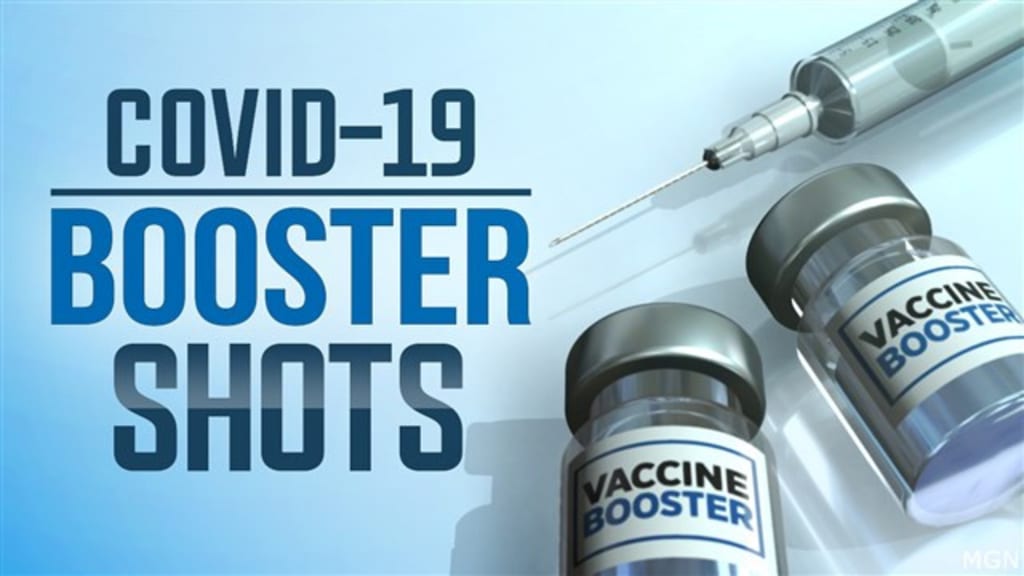
Covid boosters, also known as COVID-19 vaccine booster shots, are additional doses of a COVID-19 vaccine that are administered after the initial vaccination series. Boosters are intended to enhance and prolong the protection provided by the initial vaccine doses.
The need for COVID-19 booster shots has been a topic of ongoing research and discussion as scientists and health authorities continue to monitor the effectiveness of vaccines against emerging variants of the virus and the waning immunity over time. The decision to recommend and administer booster shots is based on scientific data, clinical trials, and guidance from public health organizations.
With the recent surge in persistent viruses, many people are looking for ways to keep themselves and their families safe. Boosters can help to mitigate the risk of infection by providing an extra layer of protection against harmful microbes. Regular boosters, such as the flu shot or a vaccine, can help reduce the severity of symptoms and even prevent certain diseases if taken regularly. Additionally, boosters can provide immunity against viruses that have mutated and become resistant to existing treatments. By taking regular booster shots, individuals can protect themselves from potential harm caused by these persistent virus strains.
Updated Covid vaccine recommendations from CDC may ease some concerns of older adults and medically vulnerable people wondering when they could get another shot. Individuals in those two categories are eligible for a booster shot today if it’s been at least four months since their last one (and two months for immunocompromised people) and are likely to be eligible for another one in the fall. People who have had Covid might wait 3 months after their infection before getting a vaccination.
Anyone 6 years and older who has received one dose of the bivalent vaccine (the fall Omicron booster) is considered up to date on Covid vaccination, regardless of their vaccine history.
If you’re age 60 or older, immunocompromised, or among the 4 in 5 Americans haven’t yet gotten a booster, you should get one now.
To make these recommendations, the FDA and CDC each have advisory committees with experts from around the country including scientists, doctors, and academics. The ACIP, CDC’s advisory committee, takes information from FDA on safety and efficacy and crafts it into guidance for who, when, and why a vaccine should be available. And because the characteristics of the virus continue to change, recommendations for vaccines and treatments should change with them.
The World Health Organization has declared the global health emergency over, but Covid transmission hasn’t yet settled into a pattern that we can predict reliably. Precautions remain helpful for many, and there’s work to do to fix what Covid has broken and exposed in our health system and society.The deep impact of the pandemic and the challenges we continue to grapple with point to a need for 3 R’s: Renaissance in public health, Robust primary care, and Resilient individuals and communities. Collaboration to improve public health, primary care, and community resilience is essential to build healthier, more productive societies better prepared for future pandemics and other health threats and better structured to promote health now.
Globally, we must strengthen health systems at all levels to address the dangerous aftershocks of the pandemic, such as missed childhood vaccinations and a health care workforce that needs much more support. Global colleagues and I wrote in The Lancet Public Health about the need for epidemic-ready primary health care that can prevent, detect, and respond effectively to disease outbreaks while maintaining routine health services.
It’s not clear how long the current Covid equilibrium will last, even as emergency measures wind down and countries around the world shift their focus to other priorities. We can’t be sure what the future will hold. The Covid vaccine — developed based on years of research and configured in less than 9 months — is the closest thing we have to a silver bullet in this pandemic. But improved public health systems are key to managing existing disease threats and preventing new ones.
About the Creator
Reader insights
Outstanding
Excellent work. Looking forward to reading more!
Top insights
Compelling and original writing
Creative use of language & vocab
Easy to read and follow
Well-structured & engaging content
Excellent storytelling
Original narrative & well developed characters
Expert insights and opinions
Arguments were carefully researched and presented
Eye opening
Niche topic & fresh perspectives
Heartfelt and relatable
The story invoked strong personal emotions
Masterful proofreading
Zero grammar & spelling mistakes
On-point and relevant
Writing reflected the title & theme





Comments (1)
Nice content ! Keep it up its really helpful 10/10 rating